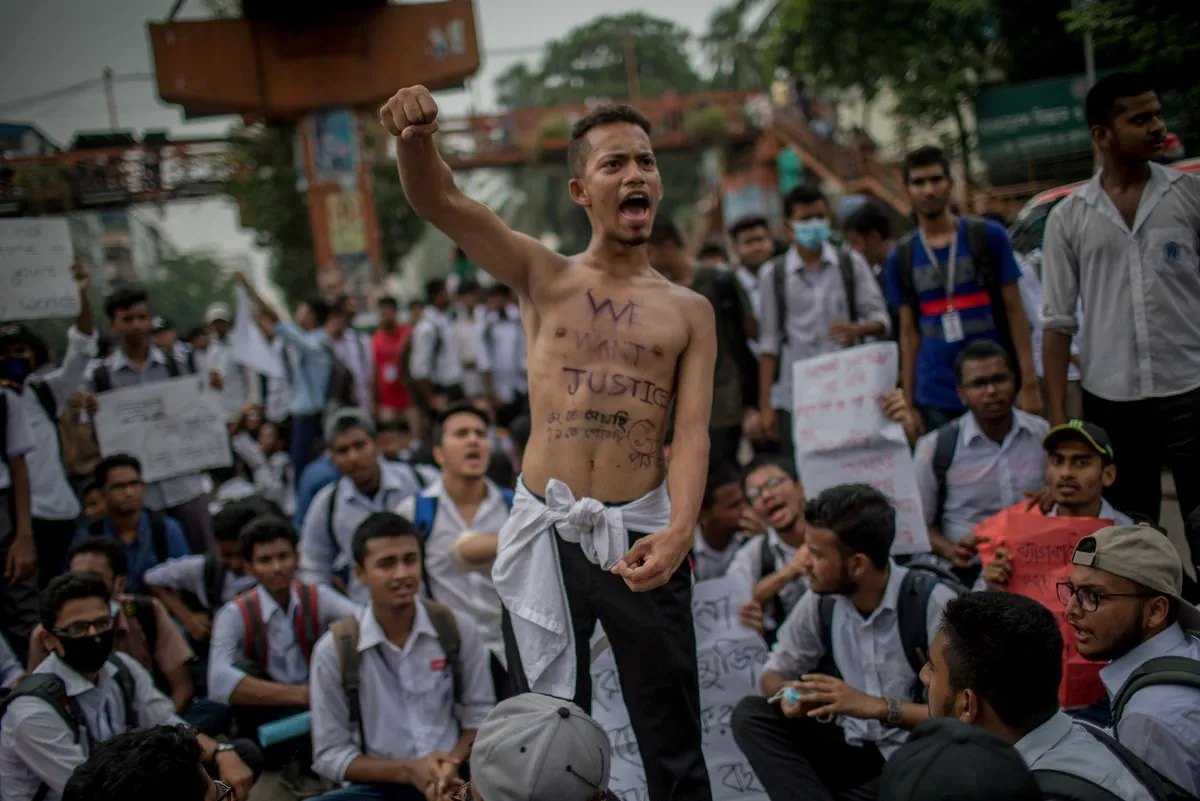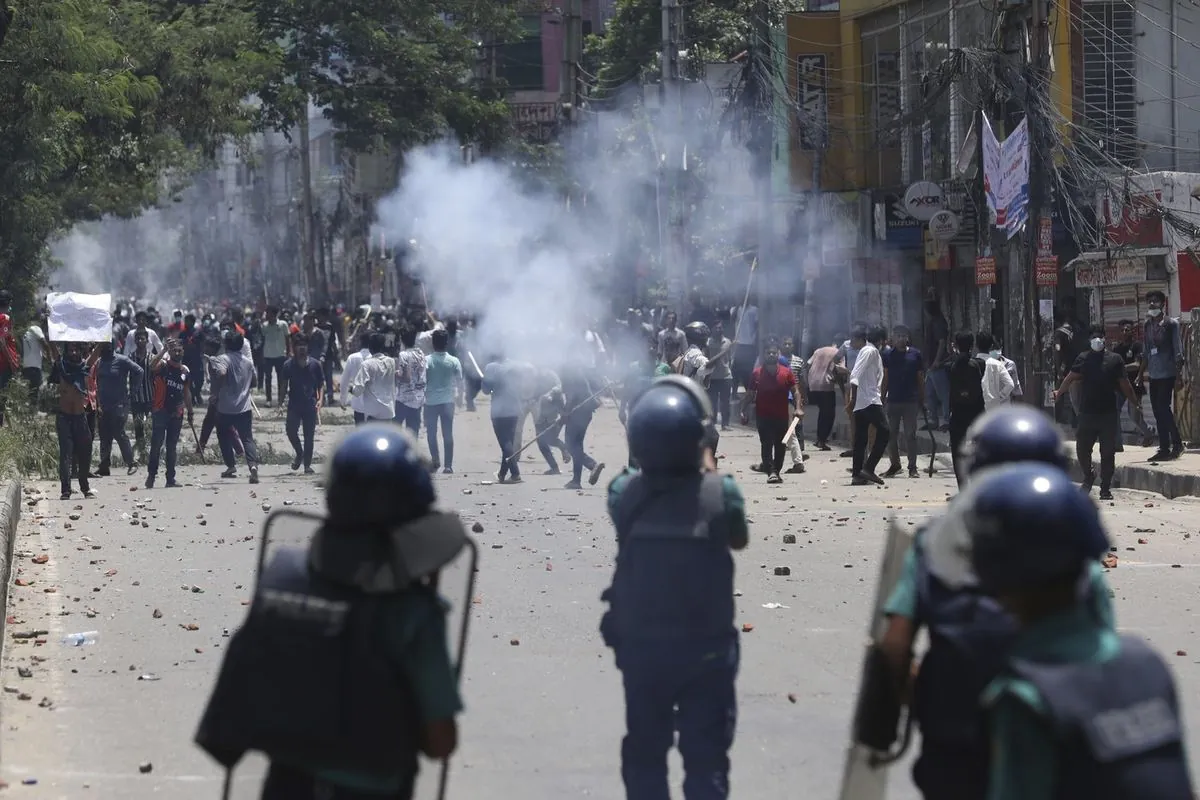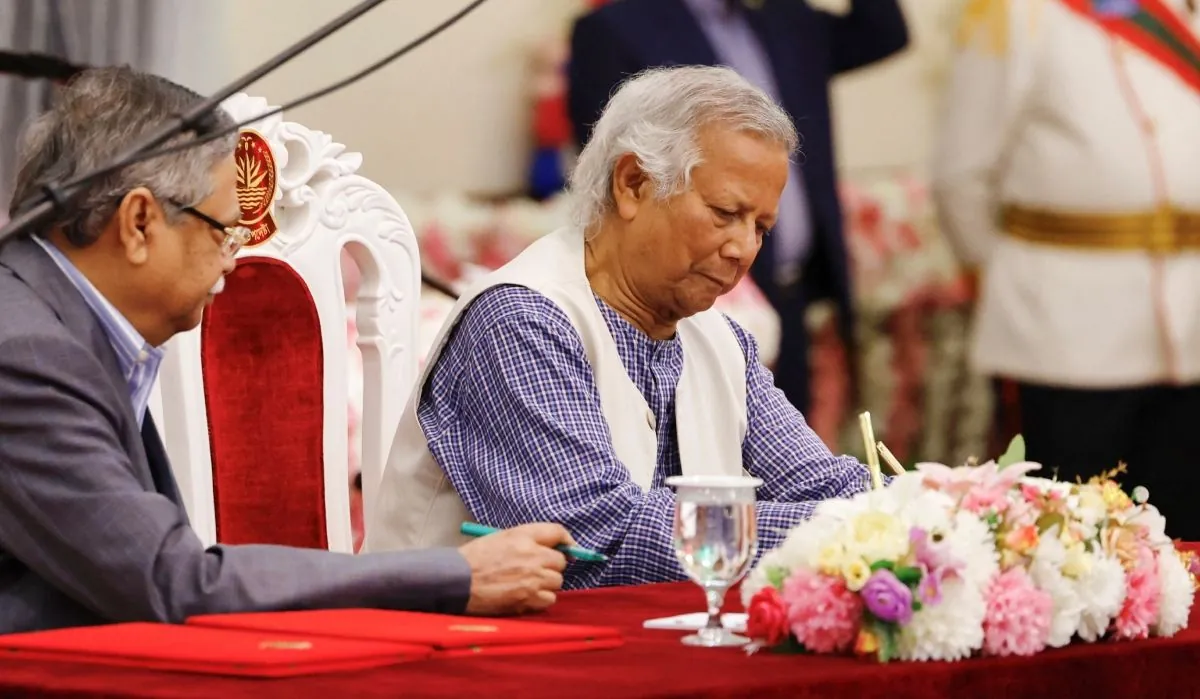Student Protesters in Bangladesh Consider Forming New Political Party
Student-led demonstrations in Bangladesh have ousted Prime Minister Sheikh Hasina. Protesters are now contemplating the formation of a new political party to implement reforms and break the long-standing political duopoly.

In a significant turn of events, student-led protests in Bangladesh have resulted in the ousting of Prime Minister Sheikh Hasina, marking a new chapter in the country's political landscape. The demonstrations, which began in June 2024, have now evolved into a movement considering the formation of a new political party to implement reforms and break the long-standing duopoly of the two main political parties.
The protests initially started in response to a law reserving government jobs for certain segments of the population. However, they quickly gained momentum, fueled by widespread discontent over jobless growth, allegations of corruption, and diminishing civil liberties. The government's harsh crackdown on demonstrators further intensified public anger, leading to the largest bout of violence since Bangladesh's independence in 1971.

Mahfuj Alam, a 26-year-old law student and protest leader, stated, "People are really tired of the two political parties. They have trust in us." This sentiment reflects the growing desire for change among Bangladesh's youth, who make up a significant portion of the country's 170 million population.
An interim government, led by Nobel Peace laureate Muhammad Yunus, has taken charge of the country. Yunus, known for his pioneering work in microcredit, brings moral authority to the role. However, constitutional expert Shahdeen Malik notes, "We are totally in uncharted waters, both legally and politically. The powers of this interim government are not defined because there is no constitutional provision."
The student leaders are now considering forming their own political party to cement reforms and prevent a return to authoritarian rule. Tahmid Chowdhury, a 24-year-old graduate student and protest coordinator, explained, "We don't have any other plan that could break the binary without forming a party."
"The spirit of the movement was to create a new Bangladesh, one where no fascist or autocrat can return. To ensure that, we need structural reforms, which will definitely take some time."
The interim government has already made significant changes, including the removal of the chief justice, central bank governor, and police chief who oversaw the crackdown on students. However, the path forward remains uncertain, with both the Awami League and the Bangladesh Nationalist Party (BNP) asserting their continued relevance in the country's political future.
As Bangladesh navigates this period of transition, the world watches to see how this student-led movement will shape the future of one of South Asia's most populous nations. The coming months will be crucial in determining whether these young activists can translate their protest success into lasting political change.

This unprecedented situation highlights the power of youth-driven movements in shaping political landscapes. As Bangladesh moves forward, the challenge will be to balance the desire for reform with the need for stability in a country that has made significant economic progress in recent years.


































